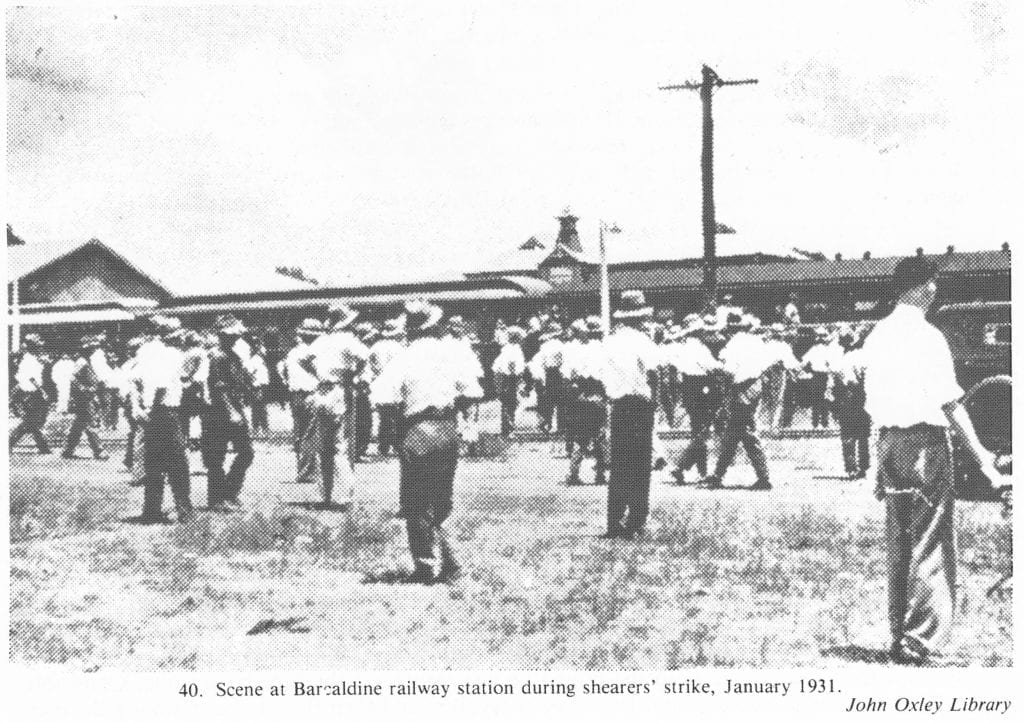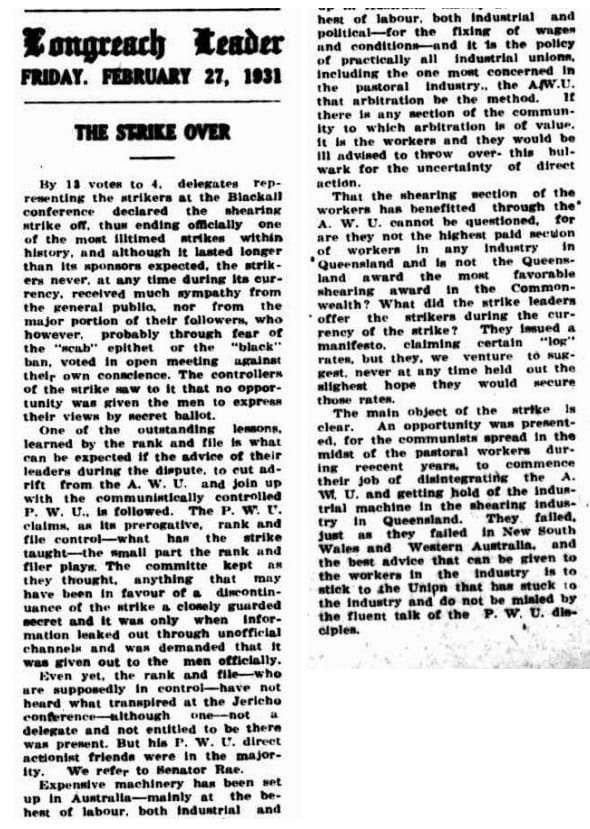Source: Hock, Isobel. (2008. 3rd edn). The Barcaldine Story 1846-2008. Barcaldine Shire Council: Barcaldine
By 1930, eight of the new selectors of Saltern Creek and Coreena were reported to have built homes and all had stocked with sheep but wool prices continued a downward plunge until the cost of production could not be met. Before the first World War, 9d to 10d a pound for greasy fleece brought a reasonable return but 20 years later, taxation, higher rates and union demands had overtaken profit. The arbitration court ordered a reduction in shearing rates and the unions resisted strongly. A situation similar to that of 1891 arose in Queensland.
In January 1931 there were dramatic scenes in Ash Street and on the railway platform as police escorted free workers, and gangs of local men attempted to persuade them to join the strike. For about four months the unrest went on with ugly scenes in many western towns. Events at Barcaldine railway station on January 31, 1931 were typical of happenings at other centres.
A train pulled in that day with loyalist shearers (or ‘scabs’ as local men called them) sheltering in shuttered carriages and guarded by police, while 400 to 500 men on the platform hurled ‘uncomplimentary epithets’ and showered the train with stones. When the train driver, J. Flynn, turned steam from the engine onto the crowd he was struck on the face by a stone. Constable Mackenzie, who was protecting him, first drew a revolver and the flailed about among the men with his baton. After a delay while Flynn’s face was dressed, the train steamed away in a shower of stones and lumps of coal, but with the loyalists safe in its carriages.
Source: Barcaldine and District Historical Society Museum
Unemployment was so widespread that the shearers’ cause was hopeless. Men could be recruited easily at the new rates. In the third week of February, Barcaldine shearing contractors notified the strike committee that 201 men were required before March 1, and there was a rush to accept the work. By the end of the month sheds were in full swing and the town was deserted by strikers.
Further Reading Strike ends in west – Longreach Leader


